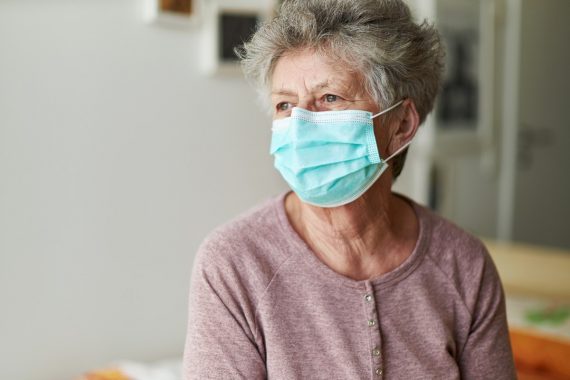Cancer patients more likely to die with Covid in UK than elsewhere in Europe

Cancer patients in the UK were 1.5 times more likely to die after being diagnosed with Covid-19 than their European counterparts, a study led by Imperial College London has found.
Researchers used a European database tracking cancer patients diagnosed with Covid-19 to compare death rates in Italy, Spain, France, Belgium, Germany and the UK from 27 February to 10 September 2020.
The study, involving almost 1,500 people, found that 30 days after a Covid-19 diagnosis, 40% of UK cancer patients had died, compared with 27% of European patients, and after six months, almost half (48%) of UK cancer patients had died, versus a third (33%) of European patients.
UK patients were less likely to be receiving cancer treatment at the time of the Covid-19 diagnosis compared to other European patients, the researchers found, adding this is, in part, ‘likely to reflect’ National Institute of Clinical Excellence (NICE) guidelines at the time which recommended deferring treatment in certain cases.
Receiving anti-cancer therapy at Covid-19 diagnosis is ‘significantly associated’ with lowering risk of death at both the 30-day and six-month landmarks, the study said.
The researchers concluded that ‘UK cancer patients have been more severely impacted by the unfolding of the Covid-19 pandemic’ despite the infection prevention measures and rapid deferral of anticancer therapy, adding these findings support the need to prioritise high-risk groups for a Covid vaccination.
The researchers found UK patients were more often males, of older age and more co-morbid than EU counterparts, but said they adjusted their calculations to accommodate for differences in risk factors.
The UK had equal proportions of complicated cases of Covid-19 and rates of intensive care admission and mechanical ventilation use as the EU, the report said, but ‘UK cancer patients were less likely to receive anti-Covid-19 therapies including corticosteroids, anti-virals and interleukin-6 antagonists’.
Dr David Pinato, lead author of the study from Imperial’s Department of Surgery and Cancer, said: ‘We knew the UK had one of the highest deaths rates from Covid-19. However, prior to Covid-19, the UK already lagged behind European nations in terms of cancer care, with the UK having lower survival rates from many cancers compared to many other EU nations.
‘We need to now prioritise cancer patients in the UK, as this study suggests they are extremely vulnerable – more so than in many other countries.’
In March 2020, NHS England asked trusts to ‘postpone all non-urgent elective operations’ in order to focus attention on the Covid-19 response but it stated that urgent care and cancer treatment should continue unaffected.
Visit Pulse Reference for details on 140 symptoms, including easily searchable symptoms and categories, offering you a free platform to check symptoms and receive potential diagnoses during consultations.











